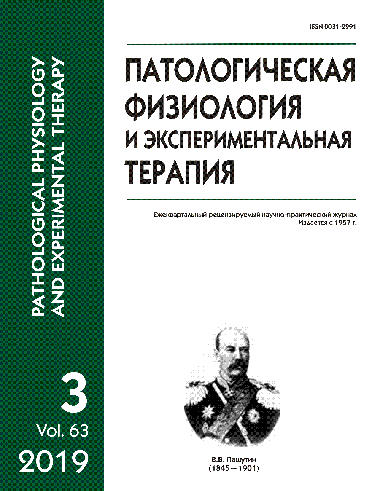Markers of endothelial dysfunction, cytokine status, collagen COL1A1_1 gene on the development of liver fibrosis in in alcohol abusers
Abstract
Liver fibrosis and its final stage – cirrhosis is one of the causes of deaths in chronic liver diseases. Alcohol and its metabolites mediate the accumulation of extracellular collagen, leading to fibrosis mediated by cytokine imbalances, processes of fibrogenesis and fibrolysis. The purpose. To investigate the immune-inflammatory factors and association between the COL1A1_1 C/A (rs1107946) polymorphism and liver fibrosis in patients abusing alcohol. Мethods. 46 patients were genotyped (the period of alcohol consumption was 15.6±9.5 years) with liver fibrosis, alcohol abusers. They were divided into 2 groups depending on the stage of liver fibrosis: 1- F0+1, n=10; 2- F3+4, n=36. Exclusion criteria were chronic non-alcoholic liver disease, acute alcoholic hepatitis, general inflammatory and autoimmune diseases. We analyzed serum concentrations of interleukin (IL)-6, IL-8, TNF-α, VEGF-A, s-ICAM-1, ET-1 and polymorphism of the COL1A1_1 gene was determined using the Real-Time PCR analysis. The stage of liver fibrosis was identified with the elastography method (FibroScan, Echosens, France). Results. The levels of IL-6, IL-8, s-ICAM-1, ET-1 depended on the degree of alcoholic liver fibrosis. The liver fibrosis was significantly correlated with the level of IL-6 (r = 0.6), IL-8 (r = 0.77), s-ICAM-1 (r = 0.58), ET- 1 (r = 0.56) (p <0.05). There were no significant differences in the levels of TNF-alpha and VEGF-A between two groups (p> 0.05). It was found that the frequency of allele A among patients was 38.3% which is significantly higher than in the control group (12.5%; р=0.005768). The frequency of heterozygotes CA was not significantly different between the group of patients and the control group (38% and 25% respectively, p = 0.4425). Homozygous AA genotypes were revealed only in patients with liver fibrosis, the frequency was 19.1%. Conclusion. A positive correlation between the level of cytokines (IL-8, IL-6), endothelial dysfunction molecules (ET1, sICAM-1) and the level of liver fibrosis was revealed. The presence of allele A of the COL1A1_1 gene may be one of the genetic factors involved in the development of liver fibrosis in patients abusing alcohol.






